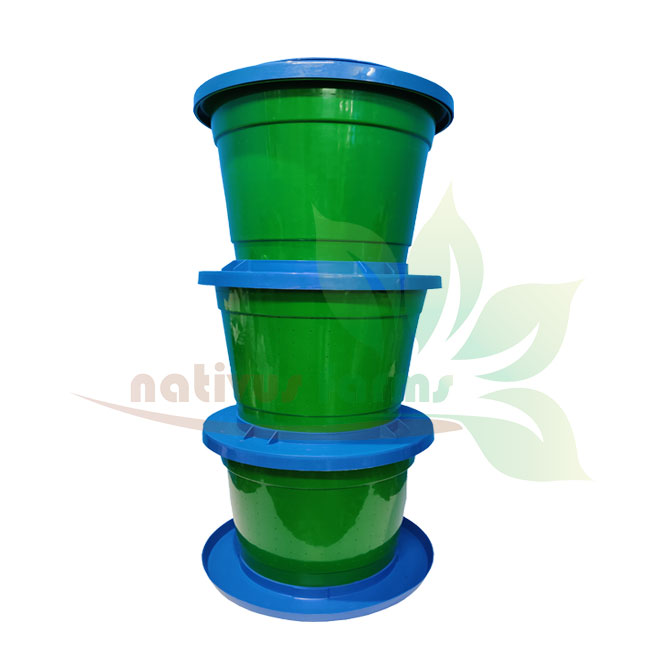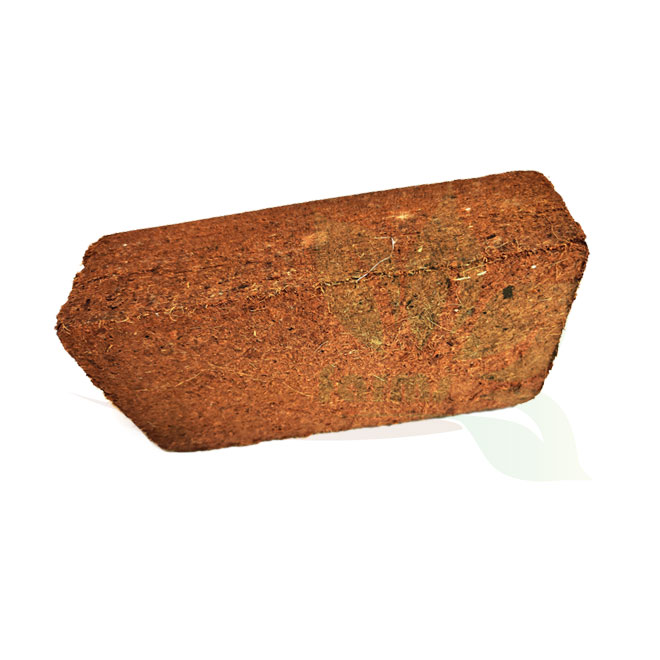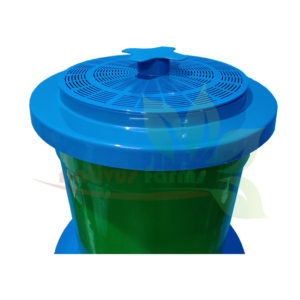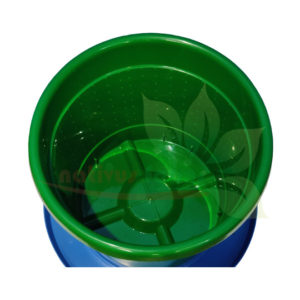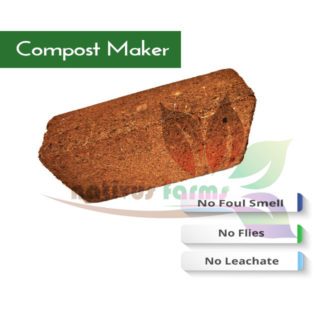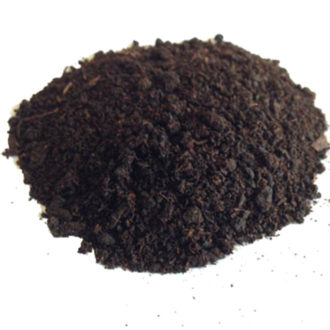Compost Bin
Original price was: ₹3,500.00.₹3,000.00Current price is: ₹3,000.00.
An easy way to convert your organic waste into manure is using an aerobic composting container along with the aerobic composting media.
Out of stock
Every household generates waste. This waste is in the form of both organic and inorganic. Most of the times these two types are mixed together and dumped as waste which then end up in landfills and dump yards causing problems not only to the environment as a whole but also to people living in and around these places. What most people don’t realize is that the organic waste generated in every household is a rich source of carbon, which if utilized properly is a very easy and readily available source of manure. Using the organic waste and converting it into manure for plants not only help make the earth a greener place, it also significantly reduces the waste going into these landfills.
An easy way to convert your organic waste into manure is using an aerobic composting container along with the aerobic composting media. This system is made up of 3 bins stacked on top of each other thus reducing the amount of space it takes up making it very convenient to use in your balconies and smaller kitchen gardens. Each bin, made up of thick PP has a capacity of 22 litres and are well ventilated by the holes on the sides and the top. This ventilation ensures that fresh air is always supplied into the container thus ensuring an efficient aerobic composting process. Controlling the moisture in the containers ensures that no smell is generated and also makes sure that maggots and fleas don’t breed.
The process is as follows:
Step 1
A litre of water is taken in a container and the composting media, available as 900 gram bricks, is placed in it for around 2 hrs. Then the brick is turned around and another litre of water is poured on top of the brick. This is again kept for another two hours.
Step 2
The moistened brick is then disintegrated using your hands. This semi dry powdery composting media should then be stored in a airtight suitable bag or container.
Step 3
The organic waste should be segregated from the non organic waste using different containers or any other preferred method.
Step 4
To start off the composting process, first place a layer of the composting media powder prepared earlier at the bottom of the container to about 1 ½ inch thick. Then the day’s organic waste is layered on top of it. Then immediately spread another litre of the composting media on top of the waste such that the organic waste is fully covered. Continue this layering process till the top bin gets full.
The maximum amount of waste that can be put in one layer is 800 grams. Avoid putting large pieces into the bin. If you have larger pieces, chop it up into smaller ones before putting it into the bin.
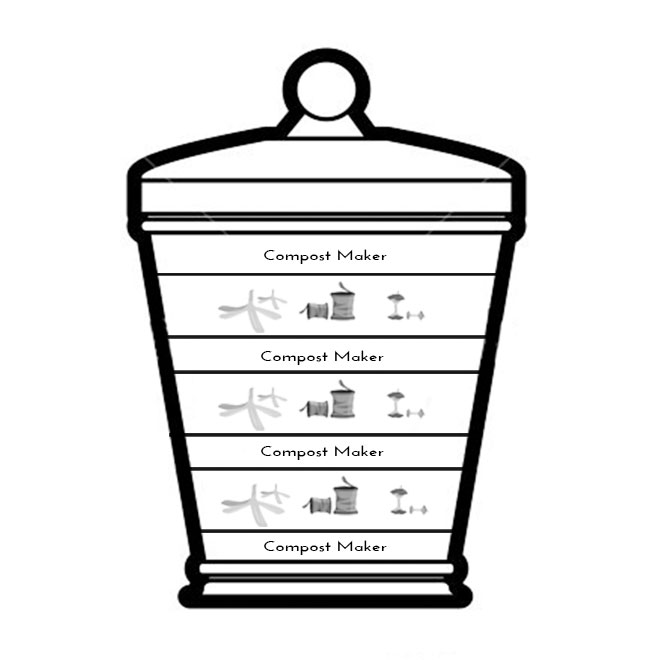
Step 5
Once the top bin is filled to about 1 inch below the rim, move the bin to the middle and place the second bin on top. Continue the process of layering until the second bin is full and then bring up the third bin, placing the first bin at the bottom.
Step 6
By the time the third bin is full, the organic waste in the first bin should have been converted into rich compost. The compost will be dark rich brown in colour and will have an earthy smell at room temperature.
In an average Indian household, each bin should fill up in thirty days thus making the whole process around 30 days till the first bin is completely converted into compost. This compost can then be either used for gardening or can also be mixed in equal amounts with fresh composting media and used again in the composting process.
The things that one should avoid putting into the bin are:
● Dog and Cat poop
● Glossy and coated paper
● Large branches
● Coconut shell and husk
● Coal fire ash
● Batteries and fruit juice cans
● Sticky labels that are found on fruits and vegetables
● Glass
● Sawdust from treated wood
● Cooking oil
● Medical waste
● Unused medicines
● Sanitary napkins
● Inorganic materials like plastic, polyester, rubber, etc.
| Capacity | 66 litres |
|---|---|
| Number of Bins | 3 Bins |
| Compost Maker | 4 Nos, 900 Grams Each |

